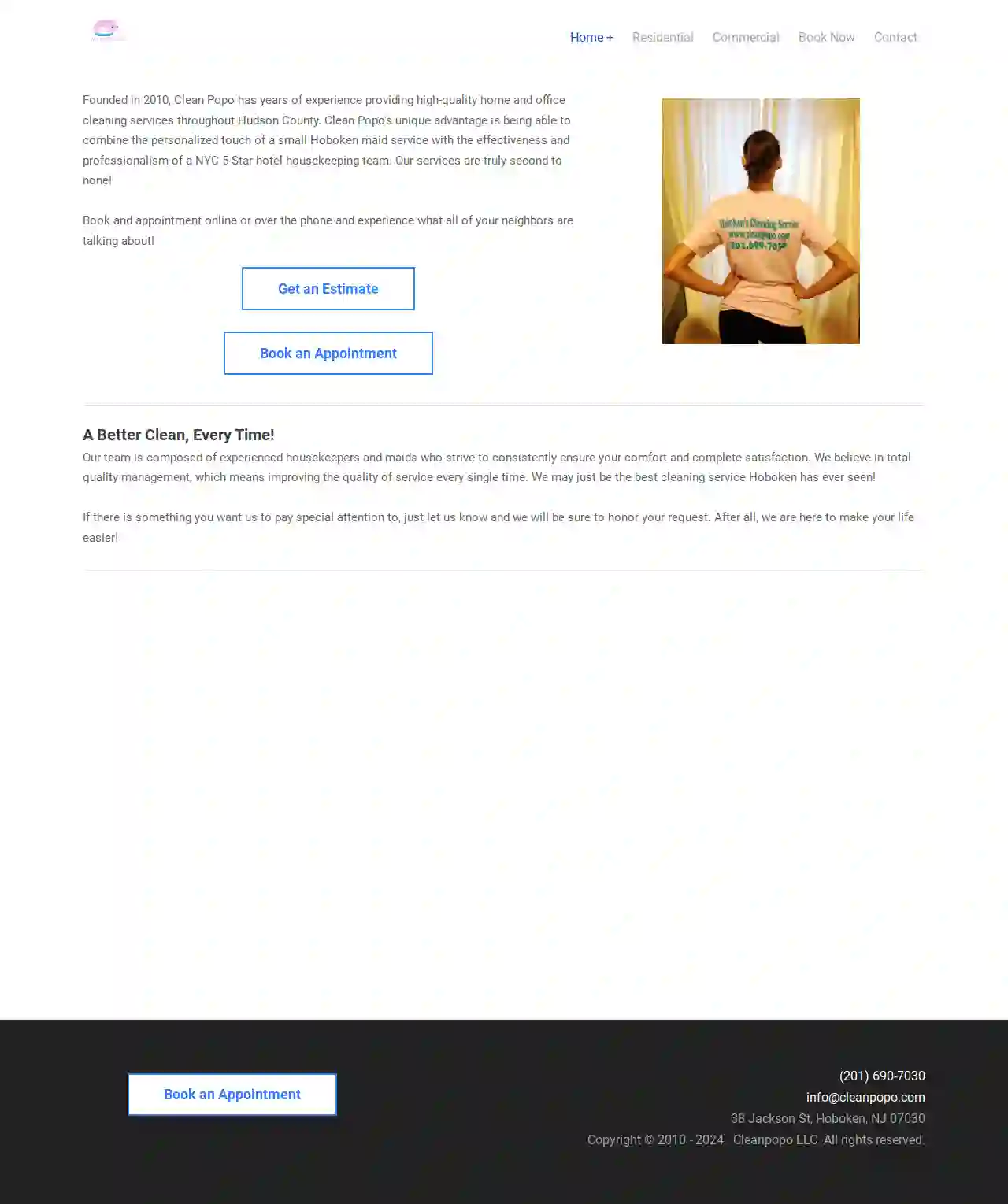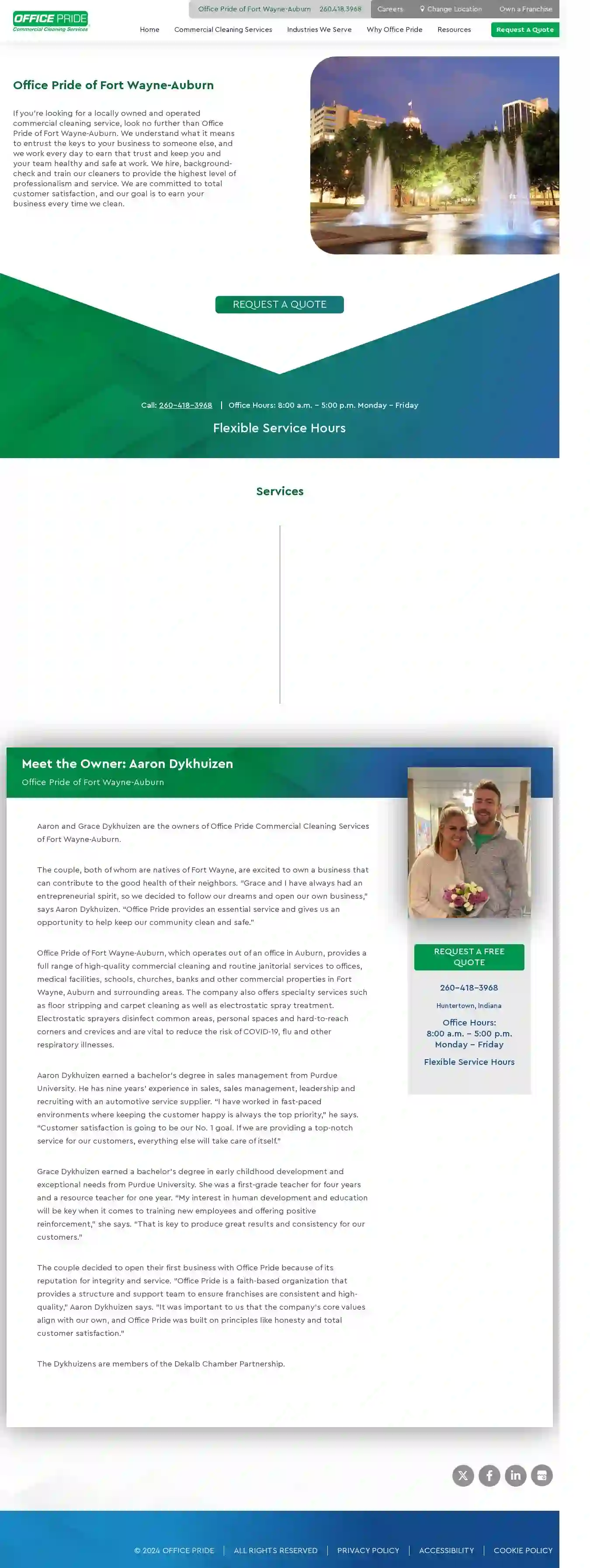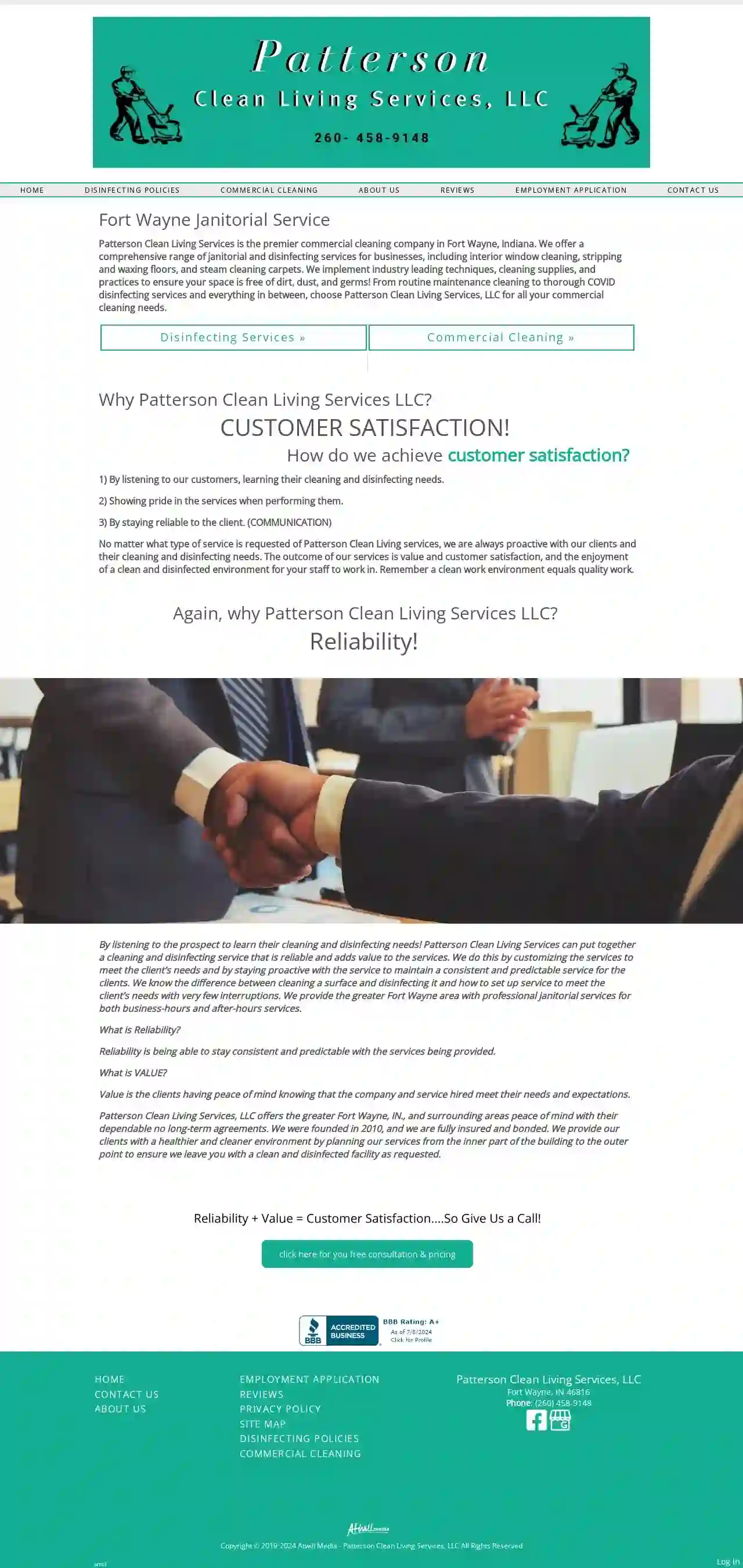Cleaning Services Plainsboro
Find top Local Cleaners in Plainsboro
Get multiple Cleaning Companies quotes for your project today! Compare profiles, reviews, accreditations, portfolio, etc... and choose the best deal.

PurICE Machine Cleaning
52 reviewsWayne, USAt PurICE Machine Cleaning, we specialize in professional ice machine cleaning services. Our team is dedicated to providing top-notch cleaning solutions to ensure your ice machine is running efficiently and producing clean ice. With our comprehensive cleaning process, we eliminate mold, bacteria, and scale, giving you peace of mind and helping you maintain a safe and healthy environment for your customers. Our cleaning process involves a full breakdown of the machine to sanitize and descale all components. We take before and after pictures upon request for your records. By choosing our services, you can become PurICE Certified, which not only ensures your ice machine is clean but also provides your customers with confidence in the quality of your products. Regular ice machine maintenance is essential to prevent breakdowns and costly repairs. Our flat pricing covers everything, and we offer scheduled cleanings to keep your ice machine mold-free. We take care of our customers, and our goal is to provide you with the best possible service.
- Services
- Why Us?
- Accreditations
- Our Team
- Testimonials
- Gallery
Get Quote
Maid in JC
4.9522 reviews88 Brunswick Street, Jersey City, 07302, USMAID IN JC is a green, Jersey City, home cleaning service that is committed to making your life Better, Greener & Cleaner. We've been servicing downtown Jersey City since 2014 with a maid service you can trust to clean your apartment or condo. Leave the house cleaning to us and get back to doing much better things. We're located at 88 Brunswick Street, Jersey City, NJ 07302 and have been servicing Downtown Jersey City with home cleaning service since 2014. Please feel free to pay us a visit soon!
- Services
- Why Us?
- Our Team
- Testimonials
- Gallery
Get Quote
Office Pride Commercial Cleaning
52 reviewsWayne, USAt Office Pride, we deliver high-quality cleaning, sanitizing and disinfecting services to ensure your workplace is healthy and safe for everyone. Our expert cleaning crews follow industry best practices, wear top-notch personal protective gear, and adhere to all guidelines from OSHA, the CDC and the EPA. Safety and cleanliness are our top priorities! We work hard so you can work harder. That’s why our Healthy Clean SystemTM is customized to fit your business, facility—or mess. We’ve got you covered. As one of the most respected commercial cleaning companies in the nation, you can expect Office Pride to provide expert cleaning service and excellent customer service. When you have your business cleaned by an industry leader that deeply values business ethics and ensures total customer satisfaction, you have a commercial cleaning partner you can count on.
- Services
- Why Us?
- Gallery
Get Quote
Clean Popo Cleaning
4.429 reviewsJersey City, US- Services
- Why Us?
- Gallery
Get Quote- Fa
Faithful Cleaning Service LLC
55 reviewsWayne, US- Services
- Why Us?
- Gallery
Get Quote 
Maid Perfect
475 reviewsWayne, US- Services
- Why Us?
- Gallery
Get Quote
Office Pride Commercial Cleaning Services of Fort Wayne-Auburn
513 reviewsWayne, US- Services
- Why Us?
- Gallery
Get Quote
The Swab Crew Cleaning Co.
56 reviewsTrenton, US- Services
- Why Us?
- Gallery
Get Quote
Hoosier Quality Cleaning
56 reviewsWayne, US- Services
- Why Us?
- Gallery
Get Quote
Patterson Clean Living Services, LLC
4.97 reviewsWayne, US- Services
- Why Us?
- Gallery
Get Quote
Over 60,241+ Cleaning Services on our directory
Our cleaning companies operate in Plainsboro & beyond!
CleaningMatch has curated and vetted the Best Janitorial Services arround Plainsboro. Find the most reliable pro today.
Frequently Asked Questions About Cleaning Services
- Weekly: Suitable for busy households with children or pets, ensuring a consistently clean and healthy environment.
- Bi-weekly: A good option for smaller households or those who maintain a relatively clean home.
- Monthly: May be sufficient for individuals or couples who live a minimalist lifestyle.
- Quarterly or Annually: Can be suitable for deep cleaning or seasonal cleaning tasks.
- Using the wrong cleaning products: Certain cleaning products are unsuitable for specific surfaces. Using abrasive cleaners on delicate surfaces can cause scratches or discoloration.
- Not reading product instructions: Always read and follow the instructions on cleaning products to ensure proper usage and avoid potential hazards.
- Using dirty cleaning tools: Dirty cloths, sponges, and mops can spread germs and dirt instead of cleaning them. Rinse and sanitize your cleaning tools regularly.
- Skipping ventilation: Proper ventilation is essential when using cleaning products, especially those with strong fumes. Open windows and doors to allow fresh air circulation.
- Not allowing sufficient drying time: After cleaning, allow surfaces to dry completely to prevent mold and mildew growth, particularly in humid areas like bathrooms.
- Ignoring clutter: Clutter makes cleaning more difficult and time-consuming. Declutter regularly to maintain a cleaner and more organized home.
- Cleaning: Removing dirt, dust, and debris from surfaces using soap or detergent and water. It improves the appearance and removes visible contaminants.
- Sanitizing: Reducing the number of bacteria on surfaces to a safe level. It uses chemical disinfectants or heat to kill or inactivate bacteria.
- Disinfecting: Killing or inactivating most disease-causing microorganisms on surfaces. It uses stronger chemical disinfectants than sanitizing and targets a wider range of pathogens.
How often should I have my house cleaned?
You can adjust the frequency based on your needs and budget. Some people opt for weekly cleaning for high-traffic areas like kitchens and bathrooms and bi-weekly cleaning for the rest of the house.
What are some common cleaning mistakes to avoid?
By avoiding these common cleaning mistakes, you can improve your cleaning efficiency and achieve better results.
Do I need to provide cleaning supplies for the cleaning service?
If you have specific preferences for cleaning products, such as eco-friendly or hypoallergenic options, communicate those to the cleaning service. They may accommodate your requests or allow you to provide your preferred supplies.
What is the difference between cleaning, sanitizing, and disinfecting?
Cleaning is usually the first step, followed by sanitizing or disinfecting depending on the level of hygiene required.
How often should I have my house cleaned?
- Weekly: Suitable for busy households with children or pets, ensuring a consistently clean and healthy environment.
- Bi-weekly: A good option for smaller households or those who maintain a relatively clean home.
- Monthly: May be sufficient for individuals or couples who live a minimalist lifestyle.
- Quarterly or Annually: Can be suitable for deep cleaning or seasonal cleaning tasks.
You can adjust the frequency based on your needs and budget. Some people opt for weekly cleaning for high-traffic areas like kitchens and bathrooms and bi-weekly cleaning for the rest of the house.
What are some common cleaning mistakes to avoid?
- Using the wrong cleaning products: Certain cleaning products are unsuitable for specific surfaces. Using abrasive cleaners on delicate surfaces can cause scratches or discoloration.
- Not reading product instructions: Always read and follow the instructions on cleaning products to ensure proper usage and avoid potential hazards.
- Using dirty cleaning tools: Dirty cloths, sponges, and mops can spread germs and dirt instead of cleaning them. Rinse and sanitize your cleaning tools regularly.
- Skipping ventilation: Proper ventilation is essential when using cleaning products, especially those with strong fumes. Open windows and doors to allow fresh air circulation.
- Not allowing sufficient drying time: After cleaning, allow surfaces to dry completely to prevent mold and mildew growth, particularly in humid areas like bathrooms.
- Ignoring clutter: Clutter makes cleaning more difficult and time-consuming. Declutter regularly to maintain a cleaner and more organized home.
By avoiding these common cleaning mistakes, you can improve your cleaning efficiency and achieve better results.
Do I need to provide cleaning supplies for the cleaning service?
If you have specific preferences for cleaning products, such as eco-friendly or hypoallergenic options, communicate those to the cleaning service. They may accommodate your requests or allow you to provide your preferred supplies.
What is the difference between cleaning, sanitizing, and disinfecting?
- Cleaning: Removing dirt, dust, and debris from surfaces using soap or detergent and water. It improves the appearance and removes visible contaminants.
- Sanitizing: Reducing the number of bacteria on surfaces to a safe level. It uses chemical disinfectants or heat to kill or inactivate bacteria.
- Disinfecting: Killing or inactivating most disease-causing microorganisms on surfaces. It uses stronger chemical disinfectants than sanitizing and targets a wider range of pathogens.
Cleaning is usually the first step, followed by sanitizing or disinfecting depending on the level of hygiene required.